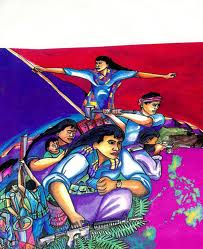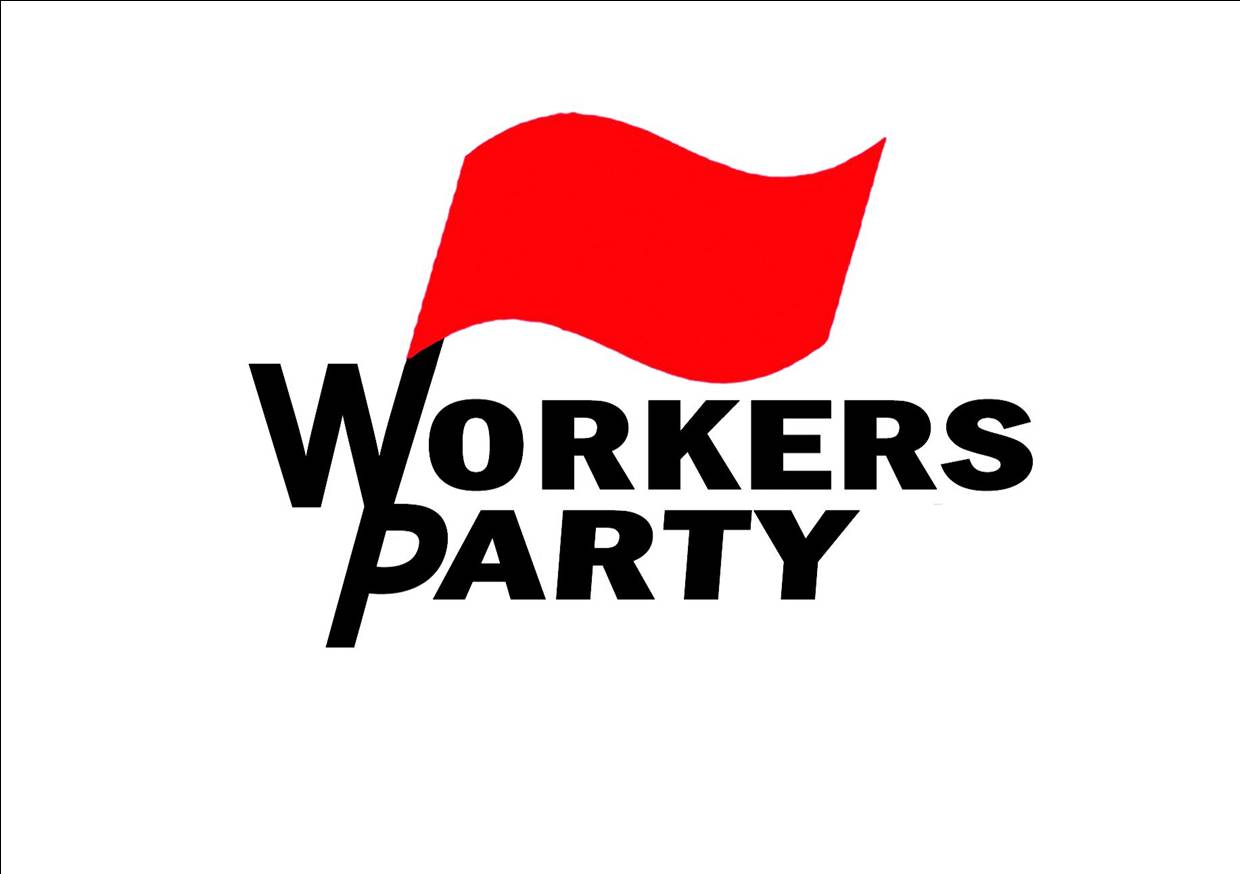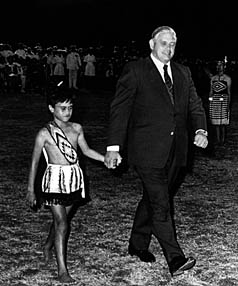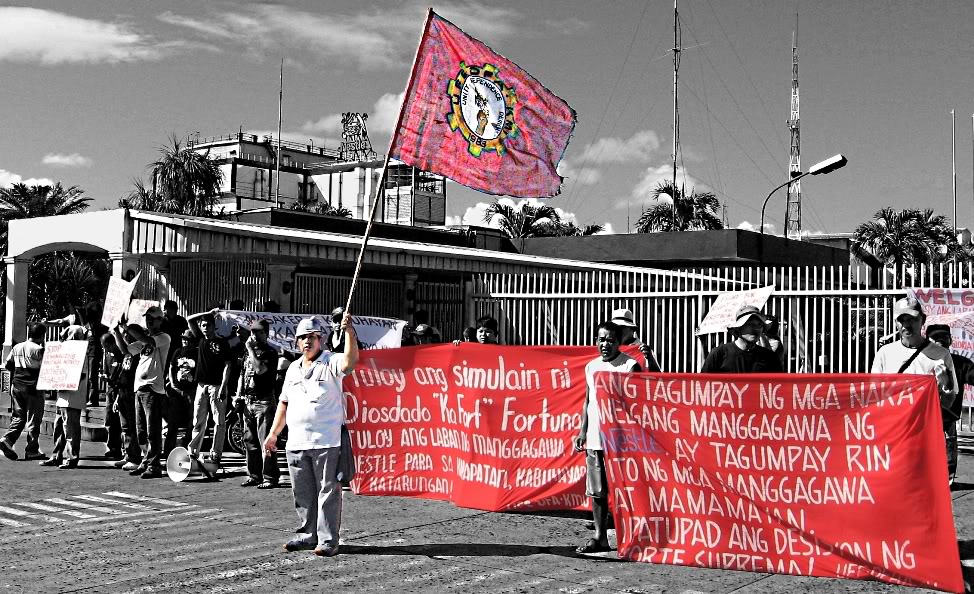The Spark December 2010 – January 2011
Mike Kay, an editor of The Spark, caught up with Mike Treen, National Director of Unite just after its first national delegates conference on 25-26 November, which was followed by a one day political conference.
The Spark: This was the first national Unite conference. Why did you decide to take that step now?
MT: From our point of view it’s a bit of a coming of age of Unite. The Auckland project was started 5-6 years ago based on the transformation of an already existing union with a small membership of 100-200 members, a place where, on a voluntary basis, some union officials were giving support to workers who were unable to get representation through traditional union structures. The structure of that organisation no longer fits Unite today. We now have 8000 financial members, broad industry representation and membership engagement and involvement is through the delegates. Given the character of the industries we work in, with a high turnover, we depend all the more on the delegates for communication, mobilisation and so on. We were unsuccessful in general membership meetings, except for a few workplaces. So the most democratic aspect of membership input is through the delegates, so we decided to base the democratic decision-making structure through a national delegates conference, and even, ambitiously, to project doing that every year. Continue reading “Unite Union’s first national conference”
Review:Mates and Lovers
In advance of Ronald Trifero Nelson’s theatrical adaptation of Mates and Lovers: A History of Gay New Zealand, Spark correspondent Ian Anderson reviews the original book.
The Spark November 2010
Chris Brickell’s Mates and Lovers: A History of Gay New Zealand is an essential book for anyone interested in local social history. The first book of its kind focused on New Zealand, the book draws on court records, personal collections, press coverage and various other sources to map out the changing social formation of “homosexuality,” as it was dubbed in Europe over the late 19th Century.
As Brickell explains, that very word “homosexuality” did not reach popular discourse in New Zealand until the mid 20th Century. With that in mind, the book covers the shifting roles that men who have sex with men have played in society, and the shifting language to describe these roles. Continue reading “Review:Mates and Lovers”
Luis Jalandoni – radio interview
 Luis Jalandoni and Coni Ledesma, two leaders from the Philippines liberation movement have finished a nationwide speaking tour.
Luis Jalandoni and Coni Ledesma, two leaders from the Philippines liberation movement have finished a nationwide speaking tour.
During their tour they gathered signatures and support from socialists, human rights and peace advocates including members of parliament, Maori activists, trade unionists, clergy and community leaders calling for the Aquino government to resume formal peace talks without preconditions, and to put an end to the wave of extra-judicial killings, enforced disappearances and illegal detention of political activists in the Philippines.
Hear more in Luis Jalandoni’s Interview With Chris Laidlaw, Radio NZ National, 14/11/10
Luis Jalandoni – Peace in the Phillipines (duration: 17′37″)
One of the most longstanding conflicts in the world is the war that has been fought, on and off, between national liberationists and the ruling authorities in the Phillipines. Luis Jalandoni has been at the centre of the conflict since the 1970s, as chair of the National Democratic Front of the Phillipines negotiating panel for peace talks with the government.
Audio from Sunday Morning on 14 Nov 2010
Housing protest in Mana

Activists from Matt McCarten’s by-election campaign in Mana have been involved in a symbolic protest to highlight the crisis in housing faced by working class people in the area and New Zealand as a whole. 3 News reported that the vacant state house in Cannon’s Creek had been occupied by protestors in order for a family currently living in a garage to move in. Shortly after the news item was aired, police arrived at the house and arrested four people, including two Workers Party members who were visiting the house to provide their campaign comrades with food. The police demanded that the four signed non-association orders as a condition of bail. The activists face court on Tuesday at 9am.
The campaign will be hosting a block party outside the property in Calliope Crescent this Saturday from 12-3pm. Matt McCarten has commented that: “The State will let working class people wait on housing lists for seven years. Occupy an empty house and they’ll arrest you in seven minutes.”
The Workers Party demand the charges against the activists are dropped immediately, and that the anti-democratic non-association orders are quashed.
Thousands across Europe resist austerity attacks

John Edmundson The Spark November 2010
Europe has seen a massive upsurge in worker resistance to planned implementation of continent-wide austerity measures. The size and militancy of the demonstrations and strikes should serve as an inspiration to workers in this part of the world, where class consciousness is at an all time low and union leadership has been sorely lacking and misdirected. In New Zealand, the CTU’s national day of action against the proposed extension to the 90 Day Act and other attacks on workers’ rights was morphed into a Labour Party election rally and Christchurch, where job losses due to earthquake related business closures, and earthquake recovery projects will mean workers there will be more exposed than most to the provisions of the 90 Day Act, the CTU decided in its wisdom that “for obvious reasons,” there would not even be a rally.
Compare this with the situation developing across Europe and the contrast could hardly be starker. The Spark has already given some coverage to the massive demonstrations that struck Greece, but huge worker rallies have taken place across many European cities and industrial action has hit several countries, most notable Spain and France. While it would be wrong to read too much into the potential of these actions, they do represent a significant positive development given the relative quiescence of the working class movement. Continue reading “Thousands across Europe resist austerity attacks”
An inspiring story of struggle by women workers

FILM REVIEW: Made in Dagenham
In 1968 three struggles by working class women in Britain helped inspire the formation of the women’s liberation movement there: Hull fishermen’s wives fought for better safety on trawlers, despite being told by the bosses to keep quiet; London bus conductresses rebelled for the right to become drivers; and women machinists at the Ford motor company’s giant plant at Dagenham went on strike for equal pay.
The Ford women’s strike led to the National Joint Action Committee on Women’s Equal Rights, a union-based group focussed on equal pay and women’s rights at work.
Over four decades later, the Ford strike has been dramatised, and partly fictionalised, as a film: Made in Dagenham, directed by Nigel Cole (Calendar Girls), produced by Steven Woolley (The Crying Game, Scandal, Interview with the Vampire) and partner Elizabeth Karlsen (The Crying Game, Hollow Reed, Sounds like Teen Spirit), written by Billy Ivory, who wrote for TV series such as Minder and Common as Muck, and starring Sally Hawkins as strike leader Rita, Daniel Mays as her husband Eddie and Bob Hoskins as Albert, the shop steward for their area. The theme song is sung by 60s British pop star Sandie Shaw, a former Fords Dagenham punch-card operator (albeit several years before the 1968 strike). Continue reading “An inspiring story of struggle by women workers”
Vote Matt McCarten for Mana
Workers Party leaflet
The Workers Party is backing Matt McCarten in the Mana By Election because he’s a genuine working class fighter.

Matt McCarten, leader of Unite union, has hands-on experience promoting workers’ rights. That is a rare thing in politics these days, where parliament is awash with bland, middle-class liberals.
Since founding Unite union in 2003 Matt has been a prominent figure in campaigns for low paid casualised workers. He has shown an absolute commitment to that cause. Continue reading “Vote Matt McCarten for Mana”
Why unions should not be affiliated to the NZ Labour Party
The Spark November 2010
This is a follow-up to the article in the last issue of The Spark where we welcomed the decision of the Victorian Electrical Trades Union to disaffiliate from the Australian Labour Party. This article looks at the problem of union affiliation to the NZ Labour Party; it is drawn mainly from our pamphlet, Labour: a bosses’ party.
Before the fourth Labour government, much of the blue-collar union movement was affiliated to the Labour Party. Since then however, very few unions have remained affiliated. The two main unions keeping the formal ties to Labour are the EPMU (Engineering, Printing, Manufacturing Union) and the SFWU (Service and Food Workers Union). In recent years, in particular since the collapse of the left social-democratic Alliance Party, several small unions (Rail and Maritime Transport, Dairy Workers and Maritime Union) have reaffiliated.

The main argument put forward by union leaders supporting affiliation is basically that it is better to be in the tent exerting influence on Labour policy than outside it simply opposing policy.
However, this argument is deeply flawed, as can be seen by looking at the actual history of union involvement in the Labour Party.
In 1918 there were 72 affiliated unions and just 11 party branches. In the 1919 general election, nine Labour candidates won seats, eight of them being active unionists. In 1938 three quarters of all union members were affiliated to the Labour Party; by 1971 it had fallen to just one half. Continue reading “Why unions should not be affiliated to the NZ Labour Party”
Union activist talks about his year in the Philippines
The Spark November 2010
The New Zealand Government has just listed the Communist Party of the Philippines and its New People’s Army as terrorist organisations. The Spark talks to trade unionist, Luke Coxon, who has just spent a year in the Philippines.
Spark: Luke you took a year off work to do voluntary work in the Philippines. What drew you there?
Luke Coxon: I first went to the Philippines as a student activist in 1996. It really shaped my political outlook. Back then I already considered myself Marxist, but I was so inspired by the living movement in the Philippines that it left a lasting impression. I always wanted to go back and in 2007 was part of a fact finding group looking into human rights abuses there. I decided then to go back and volunteer for the KMU, the militant trade union federation.

Continue reading “Union activist talks about his year in the Philippines”
Workers Party statement on the Hobbit dispute
An actors’ union attempt to negotiate better work conditions has sparked the most heated class struggle in recent memory.
The workers’ initial claims were modest.

As the latest Actors Equity newsletter puts it, the union:
… has been working to improve performers’ terms and conditions in the screen industry for some time now. We have tried a number of avenues, including: approaches to SPADA (Screen Producers’ and Development Association) to negotiate a standard industry agreement; seeking to negotiate directly on individual projects with production companies (e.g. Outrageous Fortune); and harnessing our relationships with international fellow unions to elevate conditions for all New Zealand performers (e.g. The Hobbit).
For a number of reasons some of these approaches have not delivered our goals. Our experience shows that the existing guidelines for the engagement of performers in the screen industry (“The Pink Book”) are rarely complied with in their entirety, and performers have been unable to insist on such compliance. Individual approaches to productions have also been problematic, and can only work when performers on the production have sufficient leverage. Our attempts to date have met with fierce resistance from production companies and made the legitimate desire of performers to negotiate together a high-risk strategy.
Because talk didn’t deliver any improvements for their members, the union used the only strategy remaining to it and took action.
A month ago, in collaboration with Australian entertainment unions, Equity issued a do-not-work order, refusing work on The Hobbit without a union-negotiated contract.
Backed up by a violent storm of anti union agitation from the government and the capitalist media, the film’s producers refused to negotiate, saying the actors would need to talk to the national producers’ body, SPADA. Actors Equity and SPADA met last week and withdrew the do-not-work order.
The response of the right was to put the boot in harder. Continue reading “Workers Party statement on the Hobbit dispute”
